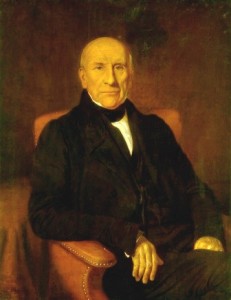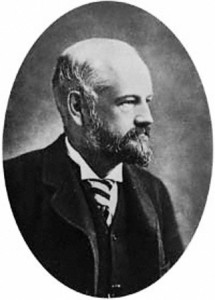Former British Guiana plantation owners benefitted – and their descendants still do – from Britain’s compensation policies for slave owners

The true scale of Britain’s involvement in the slave trade has been laid bare in documents revealing how the country’s wealthiest families received the modern equivalent of billions of pounds in compensation after slavery was abolished.
The previously unseen records show exactly who received what in payouts from the government when slave ownership was abolished by Britain – much to the potential embarrassment of their descendants.
Dr Nick Draper from University College London, who has studied the compensation papers, says as many as one-fifth of wealthy Victorian Britons derived all or part of their fortunes from the slave economy.
As a result, there are now wealthy families all around the UK still indirectly enjoying the proceeds of slavery where it has been passed on to them.
Dr Draper said: “There was a feeding frenzy around the compensation.” A John Austin, for instance, owned 415 slaves, and got compensation of £20,511, a sum worth nearly £17m today. And there were many who received far more.
Prominent names
Among those revealed to have benefited from slavery are ancestors of the Prime Minister, David Cameron, former minister Douglas Hogg, authors Graham Greene and George Orwell, poet Elizabeth Barrett Browning, and the new chairman of the Arts Council, Peter Bazalgette.
Other prominent names which feature in the records include scions of one of the nation’s oldest banking families, the Barings, and the second Earl of Harewood, Henry Lascelles, an ancestor of the Queen’s cousin.
Some families used the money to invest in the railways and other aspects of the industrial revolution; others bought or maintained their country houses, and some used the money for philanthropy.

George Orwell’s great-grandfather, Charles Blair, received £4,442, equal to £3m today, for the 218 slaves he owned.
Mr Cameron, too, is revealed to have slave owners in his family background on his father’s side. The compensation records show that General Sir James Duff, an army officer and MP for Banffshire in Scotland during the late 1700s, was Mr Cameron’s first cousin six times removed. Sir James, who was the son of one of Mr Cameron’s great-grand-uncle’s, the second Earl of Fife, was awarded £4,101, equal to more than £3m today, to compensate him for the 202 slaves he forfeited on the Grange Sugar Estate in Jamaica.
The British government paid out £20m to compensate some 3,000 families that owned slaves for the loss of their “property” when slave-ownership was abolished in Britain’s colonies in 1833. This figure represented a staggering 40 per cent of the Treasury’s annual spending budget and, in today’s terms, calculated as wage values, equates to around £16.5bn.
Biggest Payouts
A total of £10m went to slave-owning families in the Caribbean and Africa, while the other half went to absentee owners living in Britain.
The biggest single payout went to James Blair (no relation to Orwell), an MP who had homes in Marylebone, central London, and Scotland. He was awarded £83,530, the equivalent of £65m today, for 1,598 slaves he owned on the [Blairmont] plantation he had inherited in British Guiana.
But this amount was dwarfed by the amount paid to John Gladstone, the father of 19th-century prime minister William Gladstone. He received £106,769 (modern equivalent £83m) for the 2,508 slaves he owned across nine plantations.
His son, who served as prime minister four times during his 60-year career, was heavily involved in his father’s claim.
Quintin Hogg
Another illustrious political family that it appears still carries the name of a major slave owner is the Hogg dynasty, which includes the former cabinet minister Douglas Hogg.
They are the descendants of Charles McGarel, a merchant who made a fortune from slave ownership. Between 1835 and 1837 he received £129,464, about £101m in today’s terms, for the 2,489 slaves he owned.
McGarel later went on to bring his younger brother-in-law Quintin Hogg into his hugely successful sugar firm, which still used indentured labour on plantations in British Guyana established under slavery.
And it was Quintin’s descendants that continued to keep the family name in the limelight, with both his son, Douglas McGarel Hogg, and his grandson, Quintin McGarel Hogg, becoming Lord Chancellor.
Dr Draper said: “Seeing the names of the slave-owners repeated in 20th‑century family naming practices is a very stark reminder about where those families saw their origins being from. In this case I’m thinking about the Hogg family. To have two Lord Chancellors in Britain in the 20th century bearing the name of a slave-owner from British Guiana, who went penniless to British Guiana, came back a very wealthy man and contributed to the formation of this political dynasty, which incorporated his name into their children in recognition – it seems to me to be an illuminating story and a potent example.”
The TV chef Ainsley Harriott, who had slave-owners in his family on his grandfather’s side, said he was shocked by the amount paid out by the government to the slave-owners. “You would think the government would have given at least some money to the freed slaves who need to find homes and start new lives,” he said. “It seems a bit barbaric. It’s like the rich protecting the rich.”
The database is available at: ucl.ac.uk/lbs.
(From: ‘Britain’s colonial shame: Slave-owners given huge payouts after abolition’, by Sanchez Manning. The Independent, Sunday 24 February 2013)



